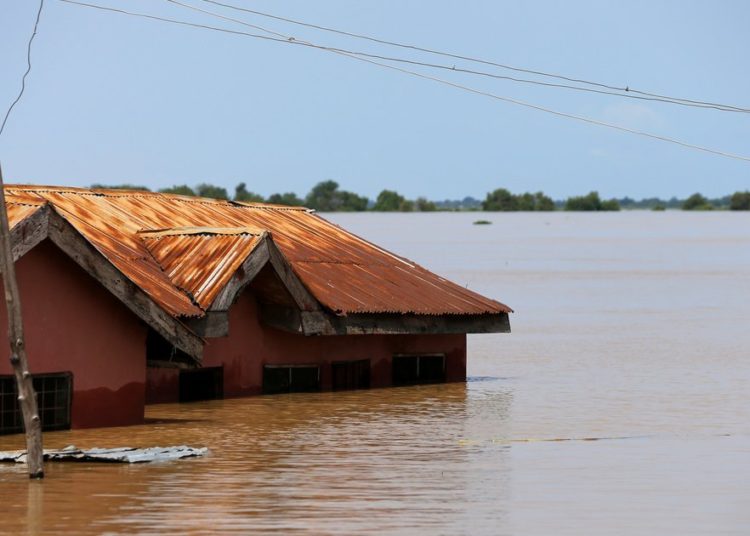Cassava, Maize Millet, Beans and some animals are among the most affected crops by the 2023 flood in August in 18 states.
This is according to the 2023 Wet Season Agricultural Performance In Nigeria report released by the National Agricultural Extension and Research Liaison Services (NAERLS), Ahmadu Bello University, Zaria.
The report also revealed that rainfall rates have reduced in the northern part of the country but increased in the southern part.
Executive director, NAERLS, Professor Emmanuel Ikani who presented the report in Abuja said twenty one states across the country recorded dry spell occurrences that affected the growth and development of different crops.
Ikani said that pests have affected rice and maize in some states at various degrees of severity and there were incidences of disease and pest infestations on roots and tubers (cassava, yam, cocoyam, potato and ginger) reported in nineteen states in 2023.
“There was still excessive rainfall that led to flood occurrences in 18 states as of august. This shows the impact of climate change across the country.
The flood affected crops like cassava, maize, millet, cowpea and some animals.
“Pests and disease infestations on cashew, cocoa, citrus and mango were prominent in eight states. Okro was attacked by a viral disease across many states in the country. In Kwara state, cashew plants were affected by leaf locusts, while infestation of cocoa by mealy bug, capsid bugs, black pod, cocoa swelling virus and pod borer were reported in Kwara, Akwa Ibom, and Osun States.
While responding, minister of agriculture and food security, Abubakar Kyari said the country is faced with a lot of challenges with the degradation of soil as one of the major challenges.
He lamented youth apathy towards agriculture as a result of the continued usage of hoe and cutlasses in the farm. The Minister was of the opinion that if farms are not mechanised, Nigeria may not be able to feed its surging population in the future.











